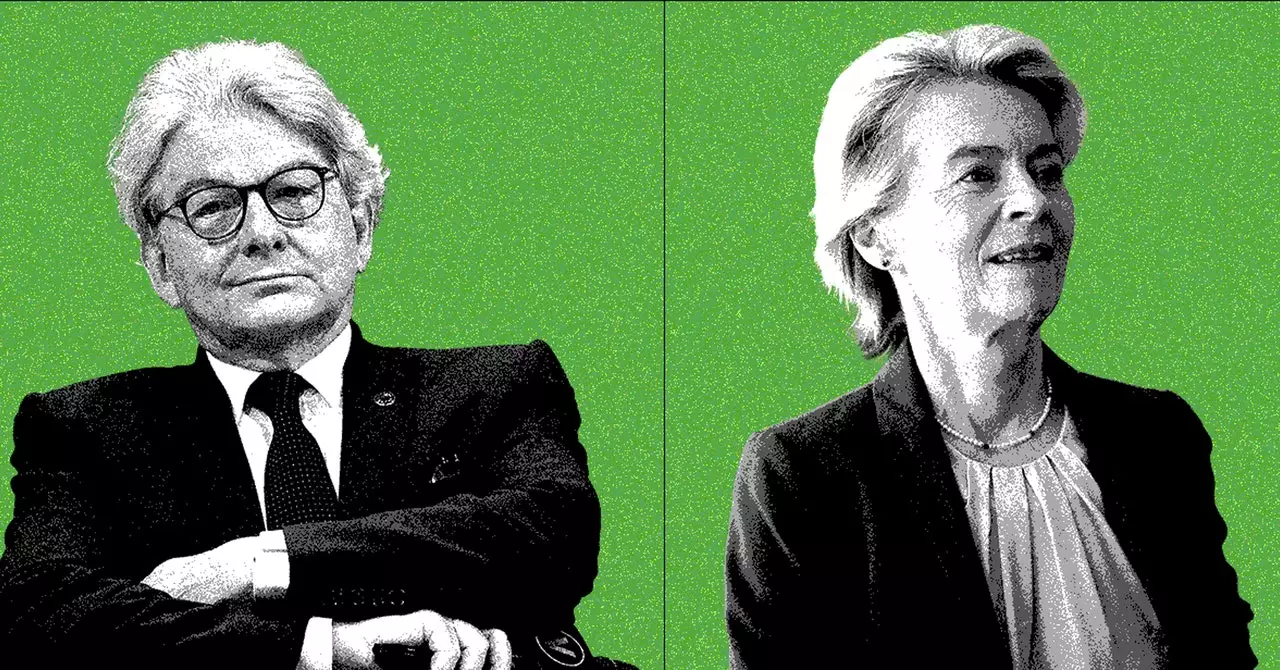The European Union (EU) has established itself as a formidable force in the global technology landscape over the past few years, largely through the regulatory efforts led by Thierry Breton. His tenure as the European Commissioner for the Internal Market has marked a significant chapter in the ongoing tussle between European policymakers and American tech giants. Breton’s high-profile engagements and vocal criticism of companies like Apple and TikTok have captured attention, but recent changes within the EU’s leadership have raised questions about the future direction of tech regulation in Europe.
Breton’s Leadership Style: A Blend of Combative Tactics and Strategic Outreach
Breton became synonymous with the EU’s tech regulatory ambitions, characterized by his unapologetic approach. With a striking presence and unwavering determination, he took his message directly to the heart of Silicon Valley, hoping to instill a sense of urgency among tech executives regarding compliance with EU regulations. His confrontational tone was evident in his public comments, where he took aim at major players, hell-bent on ensuring consumer safety and accountability from these corporations. Phrases like “our children are not guinea pigs for social media” exemplified his commitment to framing the conversation around ethical standards in technology rather than merely economic metrics.
Moreover, Breton’s use of social media to deliver pointed messages added an additional layer to his regulatory strategy. His interactions with figures like Elon Musk and Mark Zuckerberg underscored a willingness to challenge perceived complacency among tech leaders. Such tactics, while effective in garnering media coverage and public attention, also fostered a sense of unease among those in the tech industry, encouraging a narrative of confrontation rather than collaboration.
With Breton’s recent resignation amid what he described as political maneuvering, the EU is now ushering in a new face to lead its tech regulatory agenda—Henna Virkkunen. Her prior work on the Digital Services Act positions her as an ideal successor, yet her approach to regulation is expected to differ significantly from Breton’s. Reports suggest that Virkkunen’s style is more moderate, which may facilitate a more constructive dialogue with tech giants, potentially easing the adversarial atmosphere that has characterized recent interactions.
Virkkunen steps into her role with an expanded title, Executive Vice President for Tech Sovereignty, Security, and Democracy, which reflects a broader ambition to align tech regulation with core EU values. By reporting directly to President Ursula von der Leyen, she is expected to operate within a framework that balances engagement with regulation—promoting innovation while ensuring that ethical standards remain paramount. The reshuffle hints at a strategic pivot, one that recognizes the importance of fostering a collaborative European tech ecosystem.
Future Challenges: Balancing Innovation and Regulation
As Virkkunen takes the helm, the challenge remains for her to navigate the complexities of an evolving tech landscape while maintaining the EU’s strict regulatory standards. The impending approval process by the European Parliament highlights the architectural implications of this leadership change, which may influence how quickly and effectively the new commission can act. Observers are keen to see how she addresses concerns over data privacy, monopolistic practices, and the regulatory treatment of emerging technologies like artificial intelligence.
Her ability to engage with stakeholders and advocate for a balanced approach could be the key to re-establishing productive relationships with the tech sector, which has felt the strain of Breton’s stringent measures. An opportunity for a “restart and reboot” of relations, as one former adviser suggests, may yield a more reciprocal form of governance that encourages innovation without compromising consumer rights.
The transition from Breton to Virkkunen heralds a transformative era in EU tech policy. While Breton’s tenure has undeniably steered significant legislative milestones, Virkkunen’s approach may cultivate a more cooperative environment, with the potential to enhance the EU’s role as a global leader in technology regulation. As the EU faces the complex interplay of innovation and governance, it will be essential to observe how Virkkunen shapes her agenda and whether it resonates positively with both policymakers and industry leaders. The future of tech regulation in Europe holds both promise and uncertainty, and how it unfolds will depend on the ability of new leadership to strike a delicate balance.

